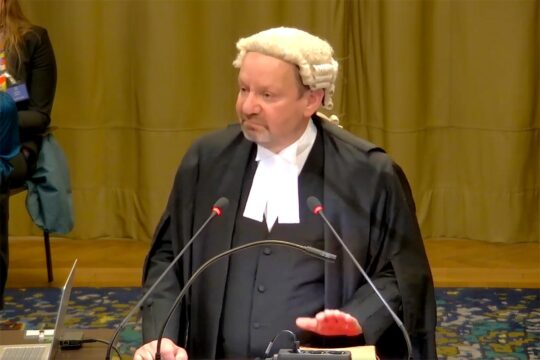A Bosnian appeals court said on Friday it had sentenced an ethnic Serb to prison for denying the 1995 genocide in Srebrenica, the first such ruling in the Balkan nation.
The appeals chamber of the Court of Bosnia and Herzegovina found Vojin Pavlovic guilty of "inciting national, racial, and religious hatred and intolerance", the tribunal said in a statement.
In May, the court had sentenced Pavlovic, 49, who heads nationalist pro-Russian Eastern Alternative association to two years and six months in prison.
Both Pavlovic and prosecutors appealed the verdict, but the court's appeals chamber increased his sentence to three years and six months in jail, the statement said.
The ruling is final and cannot be appealed.
Some 8,000 Muslim men and boys were killed in Srebrenica by Bosnian Serb forces in July 1995, in the final stages of Bosnia's inter-ethnic war.
The atrocity was deemed genocide by two international courts.
But Serbia and Bosnian Serb leaders continue to deny that the Srebrenica massacre was a genocide.
In March 2023. Pavlovic, placed at an intersection in Bratunac, a town near Srebrenica, a banner with an image of Bosnian Serb wartime military commander and convicted war criminal Ratko Mladic.
The banner's caption read: "Happy birthday, may you live long and in good health".
A UN court sentenced Mladic in 2017 to life imprisonment over genocide and war crimes, notably for his role in the siege of Sarajevo and the 1995 Srebrenica massacre.
Pavlovic was also found guilty of "approving and attempting to justify the genocide in Srebrenica" by organising a gathering in Bratunac on 11 July 2023, the anniversary of the massacre.
For the occasion, he placed posters across the town with the caption "July 11 -- Day of Liberation of Srebrenica. Thank you Army of the Republika Srpska".
Bosnia since the 1992-1995 war has been made up of the Serb-run entity of Republika Srpska along with a Muslim-Croat federation.
The criminal offence of genocide denial was introduced in Bosnia in 2021, by the top international envoy to the country, Austria's Valentin Inzko.
He amended the country's penal code to criminalise the denial of genocide and other war crimes, as well as the glorification of war criminals, that became punishable by up to five years in prison.
The decision was strongly condemned by Bosnian Serb leaders.


